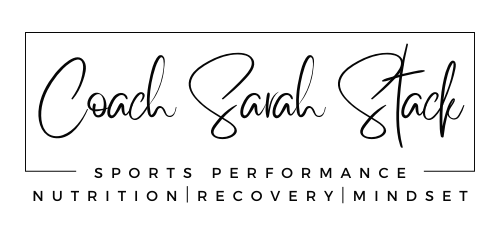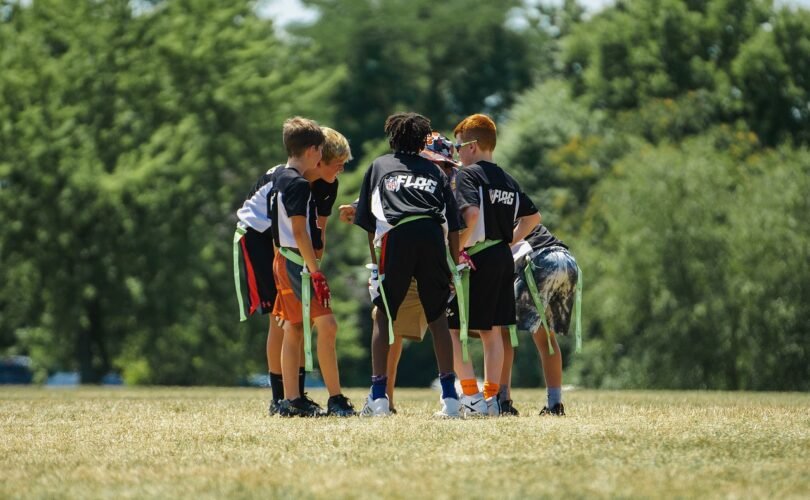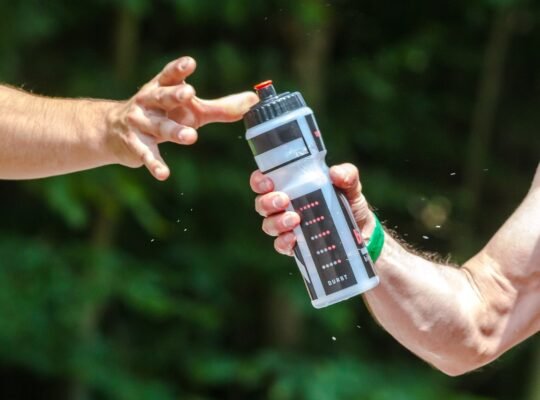There has been a lot of talk in the news lately concerning mental health issues in teenagers and young adults. Our young people are struggling and the evidence is pretty undeniable. There are more and more stories popping up about teens and young adults taking their own lives, or taking others’ lives. I would never be so pompous as to say that I have the answer. It’s a very complex problem, and the solution is likely very complex as well. My guess is that mental health professionals, law enforcement officers, legislators, social workers, and many others are stumped as well. I’m sure those who work in the mental health profession know more than I do about the various contributing factors that may result in an incredibly sad or violent act. What I do know, is fitness. To be clear, I am not saying that the answer to today’s mental health crisis among young people can be solved with fitness. But I do think that some of those who struggle with mental health issues can be helped in some capacity through fitness.
Science backs up the claim that physical activity and mental health are related
It’s pretty easy to find reliable scientific articles that state how physical activity affects brain chemistry. A quick google search of “Physical Activity and Brain Chemistry” yielded “about 247,000,000 results in 0.70 seconds” with articles from the Centers for Disease Control (CDC), Brigham Young University, The American Psychological Association, the National Library of Medicine, Harvard University, and the Cleveland Clinic showing up in the results. It’s not necessary to read all of these articles to understand that exercise makes you happier, ask any person who’s ever experienced a runner’s high or that overall feeling of contentment following an intense workout. Nevertheless, here is my basic explanation of why exercise makes you happy. Physical activity causes spikes in dopamine (the productivity and motivation hormone,) serotonin (the feel good hormone,) and norepinephrine (a hormone that impacts how your body handles stress.) Additionally, exercise has been shown to decrease the number of stress receptors in the brain which minimizes the effect that stress hormones cortisol and epinephrine can have on the brain. This is a very complex area of research, and if it interests you I advise you to look into it further. There is a ton of readily available information available at your fingertips. Please remember to look for articles published by reputable sources such as universities and medical and professional associations, and in peer reviewed journals.
Despite the proof that exercise offers mental health benefits, we continue to see competitive athletes who suffer with mental health issues
For the purposes of this blog discussion, there are a few topics relating to mental health and exercise that I’d like to offer my thoughts on. First, despite the fact that exercise positively impacts our brain chemistry, we still see many athletes, at all levels, that struggle with mental health issues. This particular issue gained worldwide attention during the 2021 Summer Olympics when Simone Biles decided not to compete citing the need to focus on her mental health. Following the Olympics, we saw many professional athletes open up publicly about their own mental health struggles. This isn’t a problem that is unique to professional athletes though. There are many documented stories about college and high school athletes who also struggle with their mental health. Recent news articles about multiple college athletes who have committed suicide within the past few years have brought this issue into light. Repeatedly mentioned are the stressors that these athletes are under such as pressure to succeed in their sport without being given any tools to handle losing; balancing both academics and success in their sport; how sports related commitments such as practice and workouts interfere with personal relationships; and how the sport becomes the athlete’s entire identity. So, while there are mental health benefits that come with exercise and physical activity associated with being an athlete, we must also recognize that there are other mental health risks that must be acknowledged that come along with performing at such a high level.
Mental health and mindset work
The connection between mindset work and mental health seems obvious, but let’s highlight a few key points. A great way to approach mindset work is to focus on setting specific goals and creating a plan to achieve those goals. Setting goals does not need to be a huge event. Start with small goals for each day: drink a certain amount of water, pay two people a compliment, smile at 5 five strangers, read three pages of a book, go to bed 10 minutes earlier than yesterday. Starting small gets you into the habit of setting goals, and gets your brain used to achieving the goals you set. Eventually, set bigger goals that take a longer time to accomplish. Create a plan for achieving those bigger goals, and put that plan into place. Being purposeful with your actions is another way to work on your mindset. The gym is a great place to put purposeful actions into practice. Performing certain exercises with a specific purpose in mind is exactly what we do in the gym, and this action carries over to other aspects of life. Finally, journaling as a mindset exercise is another way to prioritize mental health. The simple act of writing down a few thoughts at the start or end (or both) of each day creates a few minutes of reflection and focus. It also provides a written record of your thoughts, and can help provide insight into your actions. Sharing journaling prompts – not the answers, just the prompts – can help people connect with one another, and can create a sense of community centered on self-care and reflection. Mindset work, and having open discussions about mental health as a part of any sports program is a start, even at the earliest stages. This doesn’t mean that we need to talk to a flag football team of six-year-olds about suicide prevention. However, emphasizing the fun of sports, and recognizing when a kid is having a bad day and letting them know that it’s OK to take a break seems to be a very reasonable approach. As kids progress through the various levels of sports competition, we must continue to include age-appropriate conversations about mental health and engage the players in positive mindset exercises as part of the whole sports experience.
Mental health problems in teenagers and young adults are not limited to athletes
This is where I tread very carefully, as I am not a mental health professional. I fully acknowledge that there are many people out there who have very serious mental health issues that must be managed very carefully by highly trained specialists. I would not dare to write about people in that situation, it’s far beyond my wheelhouse. What is in my wheelhouse, however, is fitness and athletic training, and I believe that there are many young people out there whose mental health could benefit tremendously from a consistent exercise program. Youth sports is a very common entry point for learning about exercise and feeling comfortable and confident in a gym setting. Not all kids are interested in playing sports or have access to youth sports programs though. Those who do not play sports for one reason or another may not have the opportunity to experience that endorphin rush that results from an exercise-induced change in their brain chemistry. They may never get to feel that high that comes with competing together to get a big win, gain the tools to be able to handle a big loss, or have the experience of working hard for months to accomplish something bigger together than by themselves. Sports offers a laboratory for self-discipline, commitment, healthy habits and routines. Sure, sports and athletics are not the only way for kids to experience some of these things, but it is one of the easiest ways for kids to get a taste of these experiences. So there must be a vehicle to reach those kids who do not have the chance to experience these factors that undoubtedly have a positive impact on kids’ mental health.
Creating exercise programs that are not targeted specifically to athletes is one way to reach more kids, to help show them how physical activity can change their outlook and shape their day. This leads me to the “fitness vs sports” concept, and my belief that while there is a “too young” for certain organized sports, there is no “too young” to introduce the idea of moving your body to feel better. Therefore, programs geared towards helping kids of all ages learn about fitness should be commonplace. A kids fitness program does not need to be complicated. The programming should include running, jumping, throwing, climbing activities, with clearly defined rules, and objectives. A qualified coach should emphasize how good it feels to exercise and move your body, and highlight that exercise helps your body function better and to sleep better at night. As kids get older, start incorporating the idea that exercise can be an outlet for frustrations, a way for kids to literally work out their feelings. Let’s not underestimate how much kids can understand and how well they can apply what they are learning to their daily life. It’s not unusual to hear the phrase ‘normalize talking about mental health” without any real explanation of what that actually means or looks like. Having discussions that may seem uncomfortable at first, demonstrating that we as adults believe that kids can understand how their bodies work, and setting a good example for the younger generation are all ways that we can make conversations about mental health more comfortable.
Mental health and nutrition and recovery work
My approach to fitness involves more than simply training the body. I preach incorporating nutrition, mindset work, and recovery work in all training programs, each having a direct connection to mental health. Incorporating these elements leads to a comprehensive approach to fitness. I’ve already discussed in this blog post how mindset relates to mental health. The impact of nutrition not only affects how we fuel our bodies (including our brains) but also how we feel physically. Certain foods can make us feel full of energy, sluggish, satisfied, or ill; and how we physically feel impacts our mental health. Additionally, knowing that we’re nourishing our bodies with the healthy foods that it needs and wants creates a positive ripple effect, as we know that we’re doing something really good for our body. Simply being aware that we’re taking some sort of action towards treating our body well helps us to have a positive outlook.
Do I really need to state that designating time for recovery is relevant to mental health? Actually, yes, I do. Working hard in the gym or training for a sport is taxing, and setting aside time and specific activities focused on recovery is an important element to self-care and to your overall performance in the gym or in sports. Recovery activities can include stretching, bodywork such as massage and assisted stretching, getting quality sleep, and eating nutritious meals. Additionally, activities that encourage us to pay close attention to how our body feels helps us to become more tuned in to what’s going on in our body physically and mentally. It also helps to encourage the habit of self-care. We live in a go-go-go society, where productivity is prioritized and long hours are praised, to the detriment of our physical and mental health. Creating the habit of recovery time can help us to better manage the stresses of daily life.
In summary
We can see that there is a direct link between physical activity and improved mental health. Despite this link, we still see competitive athletes at all levels suffering with mental health issues. Training programs that openly discuss the importance of protecting mental health should be available to all athletes. Having fitness programs available to kids who are not drawn to sports is another way to reach more kids and help them understand and experience the link between physical activity and improved mental health. In addition to physical activity and mindset work, nutrition and recovery work are related to improved mental health in our young people. As clearly stated above, fitness and physical activity is not THE answer to the mental health issues facing teens and young adults in our society these days, but it is a useful tool to help some people be able to better handle the stresses they are facing.







